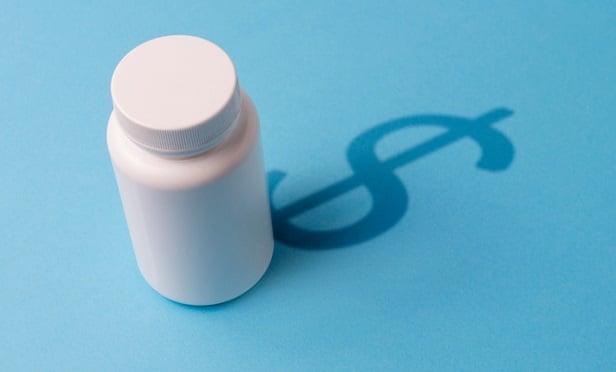 Research has found that share of branded drug spending with a coupon increased from 26% to 54% between 2007 and 2010. (Photo: Shutterstock)
Research has found that share of branded drug spending with a coupon increased from 26% to 54% between 2007 and 2010. (Photo: Shutterstock)
A new study has found that drug copayment coupons, while lowering the initial cost to individuals, contribute to higher drug prices overall in the U.S. In one specific category—drugs that treat multiple sclerosis (MS)—the study found that coupons raise negotiated prices by 8% and result in just under $1 billion in increased U.S. pharmaceutical spending annually. The study also estimated that copayment coupons increase spending on couponed drugs without bioequivalent generics by up to 30%.
The report from the National Bureau of Economic Research (NBER) said that while drug coupons defray consumers' out-of-pocket costs at the point of purchase, they increase overall prices by driving consumers to more expensive branded drugs and create other mixed incentives that result in higher prices in the long run.
Recommended For You
"The rise of rise of coupons has reduced the effectiveness of tiering and cost-sharing in general as tools in insurers' arsenal to contain spending," the study said. "By 2014, the Chief Medical Officer of CVS, one of the largest PBMs, wrote that 'traditional tiered formularies are becoming less effective in the face of manufacturers' copayment or coupon programs, which continue to proliferate.'"
Little research on the impact of copayment coupons
The report begins by noting that the practice of using drug copayment coupons is seldom mentioned when considering the rising costs of prescription drugs. The practice has accelerated rapidly since being introduced in the 2000s, with other research finding that share of branded drug spending with a coupon increased from 26% to 54% between 2007 and 2010.
"While coupons may enable individual consumers to access drugs they couldn't otherwise afford, they may also lead to higher medication prices and insurance premiums," the NBER report said. "Coupons diminish price competition among drugs and limit insurers' ability to discourage use of certain drugs via tiered formularies."
NBER researchers estimated that by 2017, more than 93% of branded drug spending occurred in couponed drugs. "As tiering has become less effective, insurers have increasingly turned to step-therapy programs, which are more onerous and prescriptive, requiring patients to undergo specific regimens or to 'fail first' using certain medications or treatments before approving coverage for a drug," they wrote. "Prior authorization requirements and complete exclusion of drugs from formularies are also increasingly common. Indeed, recent research finds that couponed drugs are more likely to be excluded from coverage."
A ban on coupons would help insurers but hurt individuals
The study concluded that one obvious attempt to change the status quo, a ban on coupons, would ultimately result in substantial savings for insurers, which could presumably be passed on to consumers. However, for individuals currently receiving savings from coupons, the immediate result would be higher cost sharing, at least in the case study of MS drugs.
The researchers recommend tools to offset this problem, such as adjusting health savings account policies for affected consumers or through targeted premium reductions. No matter how the problem is addressed, the authors suggest addressing this issue will be complicated.
"The objective would be to preserve price incentives to utilize cost-effective therapies, while nevertheless minimizing the financial burden for patients with high drug costs," the NBER study concluded. "Notably, our results suggest that popular policy proposals such as capping cost-sharing or requiring plans to shift from coinsurance to fixed (and low) copays are likely to lead to drug price inflation. These reforms would likely exacerbate the underlying problem of high prices while addressing a symptom (high patient cost-sharing)."
© 2025 ALM Global, LLC, All Rights Reserved. Request academic re-use from www.copyright.com. All other uses, submit a request to [email protected]. For more information visit Asset & Logo Licensing.







